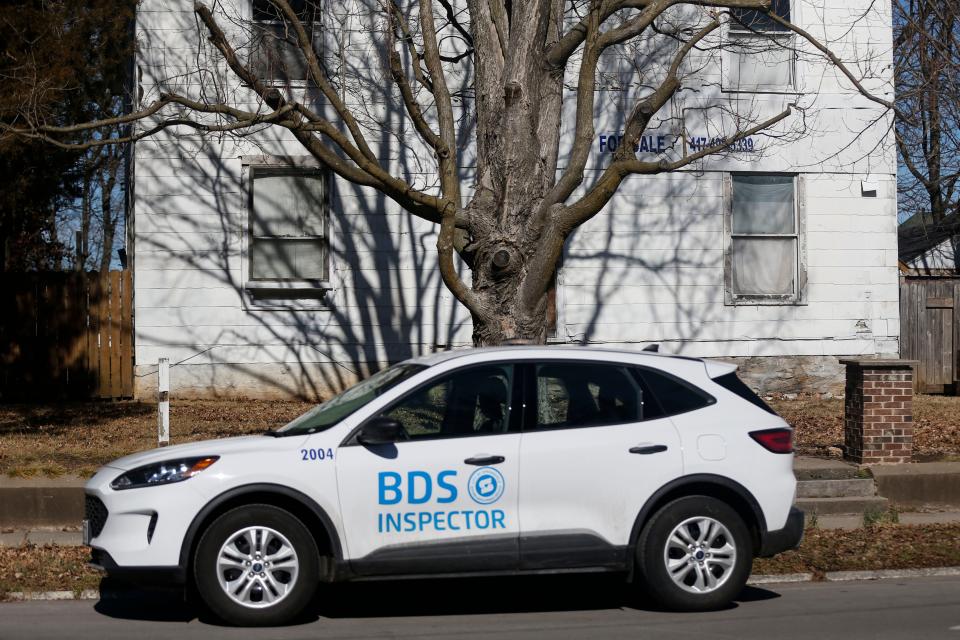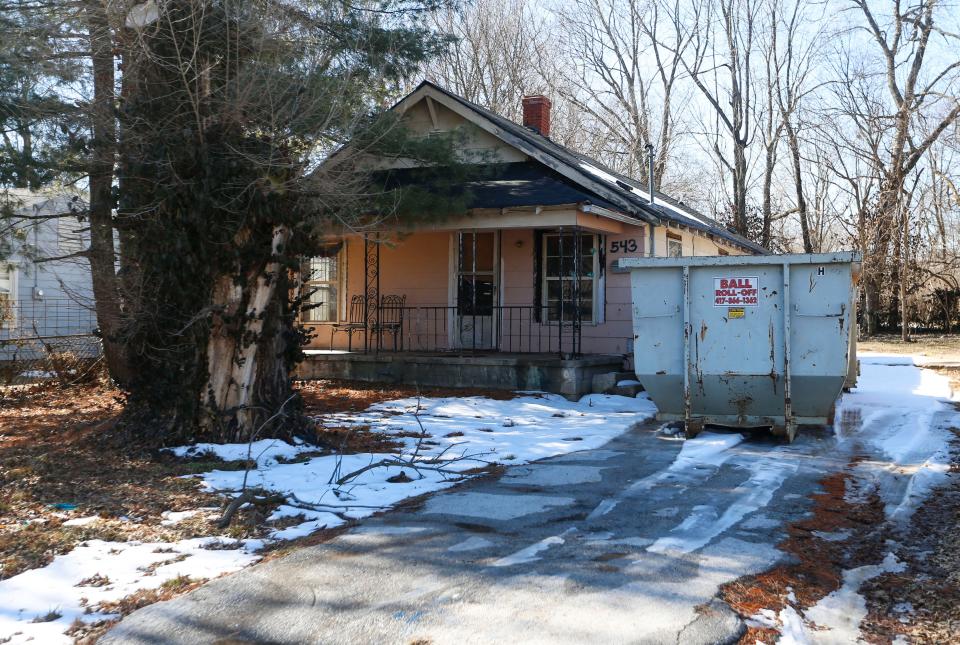City Council sets deadline for staff to gather data, develop plan for nuisance properties
Springfield City Council passed a resolution Monday that could be a first step toward addressing nuisance properties in the city.
The plan doesn't yet take any concrete action against homeowners or landlords with chronic upkeep issues. But it does instruct city staff to do more to track and report on nuisance properties and develop a course of action.
Sixteen speakers, from tenants to realtors to community organization representatives, spoke in favor of the resolution and highlighted the benefits taking this step could bring.
The plan includes tasking the city manager with reporting data on nuisance properties, finding other communities and their approaches to the problem and establishing ways to engage with community organizations and utilize city programs for pre-enforcement resolutions.
Councilman Brandon Jenson, who sponsored the resolution alongside Councilwoman Monica Horton, said the goal is to find ways to raise the standard of living for everyone while not penalizing those facing obstacles like financial insecurity or disability that make it difficult to keep up their property.
The resolution also asks the Finance and Administration Committee to assess escalating fees and fines for chronic nuisance properties and report recommendations based on the findings. The Community Involvement Committee on the other hand will be asked to consider the feasibility of all recommendations from the Feb. 23 Nuisance Property Work Group Final Report and present their findings to council.

According to past News-Leader reporting, the group called for a total overhaul of the city's nuisance property abatement system. This would cost and estimated $665,000 initially and add a $125,000 annual increase in city expenses. Their recommendations included replacing the rental registration program with an actual inspection program, changes in city code, a new city position dedicated to residential nuisance properties and dedicating resources to deal with root causes such as poverty and disinvestment.
Why is this needed?
The council bill states that the rise of nuisance properties introduces public safety and health concerns like increased fire risk and exposure to mold and asbestos.
Tom McFarland, a tenant in the Phelps Grove neighborhood, shared his own experiences of growing up in unsafe and unhealthy housing with the council. He said he developed chronic asthmatic bronchitis after being exposed to black mold and will have to use an inhaler for the rest of his life. Speaking in support of the resolution, he said this could have been prevented had there been a system in place for rental inspections.
"Folks are living there because they got to live somewhere," McFarland said.

In the recent Springfield Housing Study community meeting on June 8, consultants with APD Urban Planning and Management shared information that nearly two thirds of all residential properties in Springfield are more than 50 years old. More than 2,000 residential properties — about 5% of all housing — were found to be in a poor to dilapidated condition.
One of the main concerns when it comes to nuisance properties is the lack of enforcement for repeat offenders and the city's reliance neighbors' complaints to find violations. The lack of efficient and timely enforcement or fixes after a complaint discourages people from filing complaints in the first place, according to the work group report.
More: West Central Springfield neighborhood battle illuminates city’s nuisance property struggles
The work group found over 17,000 code complaints, with 71% of those from rental properties, from 2015-2020.
Alice Barber, leader of Springfield Tenants Unite, spoke to the council about the limitations of the current system, noting that many tenants do not file a complaint in fear of retaliatory eviction if their landlord finds out it was them who reported it.
"We need a better way to deal with nuisance properties," she said. "We need to get accurate and recent data on the scope of the problem, and then we need to create and enforce evidence-based policies to address housing conditions."
The resolution also aligns with the city's Forward SGF comprehensive plan's initiative to support and invest in revitalizing neighborhoods.
Some speakers emphasized the collaborative work that has gone into creating this resolution and the need for this approach to continue as the data is collected and more decisions are made to address nuisance properties.
What happens next?
According to city documents, the city manager has three months to present a report on all this year's nuisance citation data up until June 2. After this, these reports will be presented quarterly.
Reports for both fines and fees and feasibility of applying the work group's recommendations are due in front of council within six months. City code change recommendations have to also be presented within the six-month timeline.
More: Springfield Cooper Park, Killian sports complexes expand renovation plans with ARPA funds
Councilman Abe McGull said he hopes, in addition to fines and fees, incentives could be offered by the city to landlords and property owners who do their part in keeping up properties and providing safe housing to renters.
"We should have some sort of skin in the game, because that's what we want," he said.
Horton said this resolution does not exist in a vacuum but rather has part of years-long efforts by the city and the council to address the problem step by step and to build on past successes.
"Our votes would merely pick up the baton where our predecessors left off and compel us to do our part to continue running this marathon in ending Springfield's epidemic of chronic nuisance properties," she said prior to the resolution receiving unanimous support from the council.
This article originally appeared on Springfield News-Leader: Springfield City Council takes steps to deal with nuisance properties

